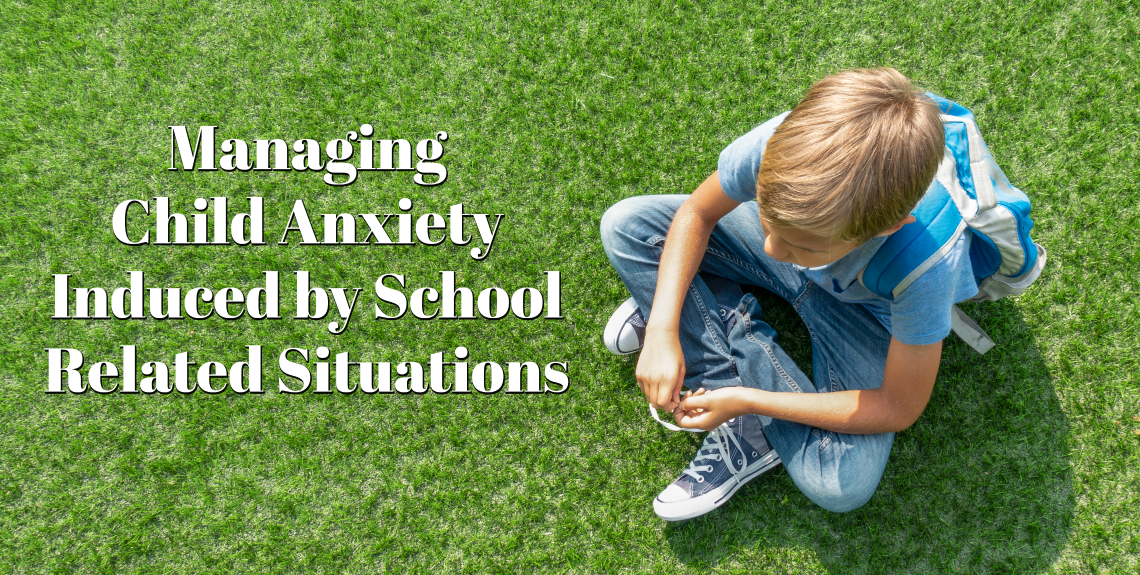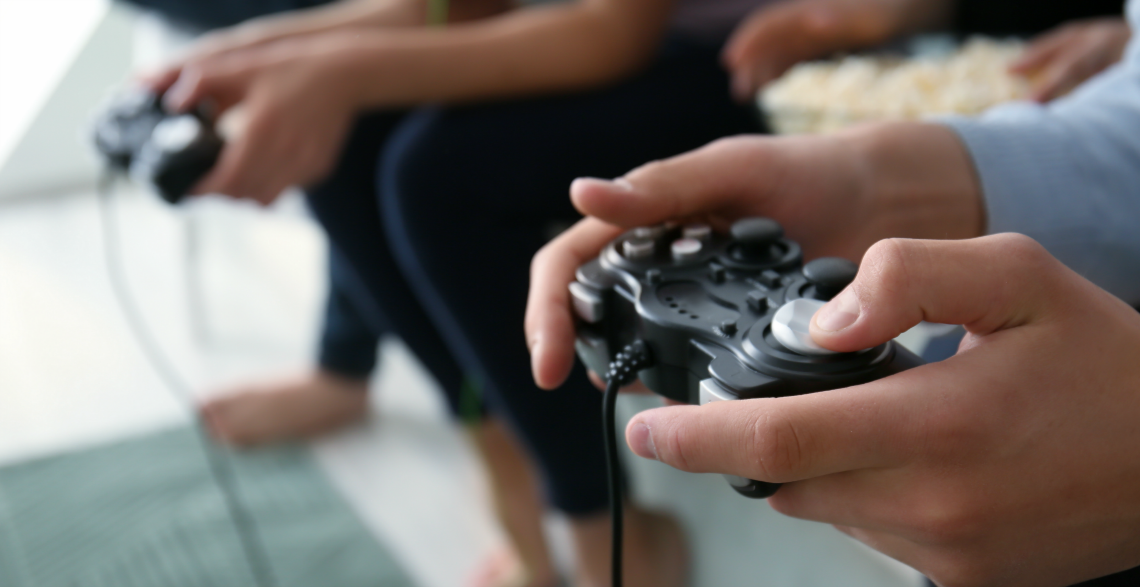
With each passing year, I have come to the realization that children of today are put under enormous pressure. From academics, sports, after school activities, and simply making the right choices in friendships, our youngsters are stressed out. Last week I had the opportunity to speak with Dr. Michael Kisicki, a physician and adolescent specialists at Kaiser Permanente Orange County. We discussed ways to help manage child anxiety induced by school related situations.

Helping Children Cope with Childhood Stress:
A topic I have found myself discussing frequently with parent friends, the expectations put our children has skyrocketed. An increasing amount of homework, paired with sports and additional after school activities, we’re all struggling to keep up. In speaking with Dr. Michael Kisicki, we discussed that the pressure on children today is beyond what we experienced as children. Life is more structured and supervised. He shared the following suggestions to helping our children cope with these added pressures, which vary by age.
Parents of elementary to middle school children, tend to take a more protective role, watching over their children, many times intervening in the situation. Dr. Kisicki gave these recommendations for this age group:
- Be a good role model: Children will learn how to handle different situations as they watch their parents dealing with day to day situations.
- Recognize symptoms: There are many different ways stress can effect children. Watch for these signs and help them understand what is going on with their body:
- Nauseous before school or a test
- Difficulty sleeping
- Headache
- Give them an array of coping strategies: While we want our children to cope with stress they same way we do, unfortunately children will cope in their own way. The best way to help them is by giving them a range of options and helping them explore what works best for them.
With high school children and older, parents tend to take the role of a counselor, guiding their older children through situations. There are a few strategies that work best for this age group:
- Parents should take a more passive role: Guide them as needed. If you direct the situation, they may react and do the opposite you suggest.
- Let them handle the situation on their own: If we intervene, they will not know how to handle things on their own.
Helping Children with Homework Stress:
For many weeks, I have felt buried in school work. One of my children has large amounts of homework, from daily math pages to research projects; required independent reading and additional weekly assignments. As a parent, I feel I am always nagging and keeping check lists to keep him on track, when I feel he should be able to manage this by now. I asked Dr. Kisicki about any sort of advice for parents who are struggling with this same issue.
Dr. Kisicki shared that at 10 years old, we shouldn’t expect our children to be expert organizers. At that age, most of the responsibility falls on the adult or parent. However, if teachers, parents and students collectively utilize technology and have good communication, they should be able to keep track of everything that needs to be done. As the child gets older, they’ll be able to handle and take ownership of these responsibilities.
Dr Kisicki recommended parents to:
- Know the strengths of your child. Find a tool that will help them keep track of their responsibilities:
- A journal
- A checklist
- Electronic reminders
- Planner
- Share the responsibility with your child. Work together in setting goals, check lists, etc.
- Working with a team of classmates, or in our situation, a team of parents
- Homework Clubs or tutoring
- Prioritizing tasks
- Give them a goal as to when they have to start handling this on their own
- Most important: Make sure that they have a balance between responsibilities and fun

Another question I posed to Dr. Kisicki was how can parents support their children in a manner that is beneficial to both the child and the adult without nagging obsessively, because I constantly feel like I’m the mean parent when it comes what I expect from my child. He suggested:
- While a child needs to take care of their responsibilities, they also need the same amount of time to have fun and “be a kid”. Reward their hard work with time to unwind
Ways Children Can Relieve Stress:
In my opinion, I have always felt that sport are a good stress reliever for children as well as adults. Dr. Kisicki was in complete agreement. He said that being physically active, tunes down the autonomic stress of society, and is a great way to relieve tension. He recommended that children find a release of their own:
- A favorite sport
- Hanging out with friends
- Church
- Boy Scouts
- Chess Club
- Speech or Debate clubs
- Anything where they can achieve some sort of progress and increase their self esteem

Decompressing with Technology:
For my children, one of their favorite way to wind down is to lose themselves in their video games. I asked Dr. Kisicki if screen time and video games are a healthy way for a child to decompress. He reminded me that there is such a tremendous generation gap between our childhood experiences and that of our children. Unfortunately, as a parent, we cannot even begin to understand what technology means to them. In the world we live in, it is a HUGE part of their lives. He suggested:
- Be mindful of their desire to dive into technology, and understand that it is a different world than we grew up in
- Be present, check in, know what they’re doing
- Know who they’re communicating with
- Be mindful of the kind of language they are hearing, things they are seeing. Unsupervised may take dark turns.
- Violent games have a different effect on different children. Some can be stress relieving, others can be agitating and desensitizing
Helping Children with Friendship Anxieties:
With my daughter, I have noticed there is an increased amount of stress when dealing with what I call, the “girl drama”. Conflict arises when girls have disagreements or arguments, causing tears, frustration and at times, students suggesting that they do not want to return to school. I asked Dr. Kisicki how to relieve the anxieties friendship conflicts and he suggests listening and being supportive:
- Modeling: Show children how to handle issues of conflict by modeling how we as adults, take care of our own issues with work, friends, and relationships at home. Discuss the feeling of being frustrated, and not being overwhelmed by the situation. Children will learn how to cope by watching mom and dad.
- If there is a serious conflict, address issues related to safety: Help the child understand their feelings, and explain why they are feeling this way. Rather than stressing over solving the problem, let them know that sometimes time can solve issues.
- Remind them that sometimes, there is no resolution, you just need to move on.
Helpful Resources for Children and Families Through Stressful Seasons:
Dr. Kisick also shared resources that are available through Kaiser Permanente to help parents better support children through stressful seasons:
- Mental health services for parents. When child has a hard time, it can affect the parent
- Counseling services
- Parenting groups
- Intensive outpatient services.
- Medication services
- Kids may be acting out because of things they are struggling at home, school, etc.
I was so excited to speak with Dr. Kisick about these issues that are at the forefront of our lives at the moment. As a parent, I’m always wondering if my parenting style is over the top, or not enough; if I need to step in more, or not enough. It was relieving to hear from him, that may of the questions I posed, are the exact same as most parents he see’s in his practice. It is nice to have the reassurance that you are doing the right things and making the right decisions for your family.
It’s great that a health care provider like Kaiser Permanente Orange County and their physicians, go beyond simply offering health insurance coverage. They become a families’ health care partner. Whether explaining the nitty-gritty on how to read plan coverage, to sharing what to expect at doctor’s visits, to making sense of the latest in health care news, they’re a great source of information for moms and families. As a Kaiser Permanente member, you’ll have the ability to select from many services such as: primary and urgent care, emergency facilities, labor and delivery, pharmacy, and lab all housed under one roof. The ability to choose your own doctor based on their specialty is an added bonus. Additionally, when you register through kp.org you can view most lab results, email your doctor’s office non-urgent questions, schedule and cancel routine appointments, and even manage a family member’s health. Find out more today at: kp.org/orangecounty.
Connect with Kaiser Permanente via social media, visit Facebook or Twitter.




